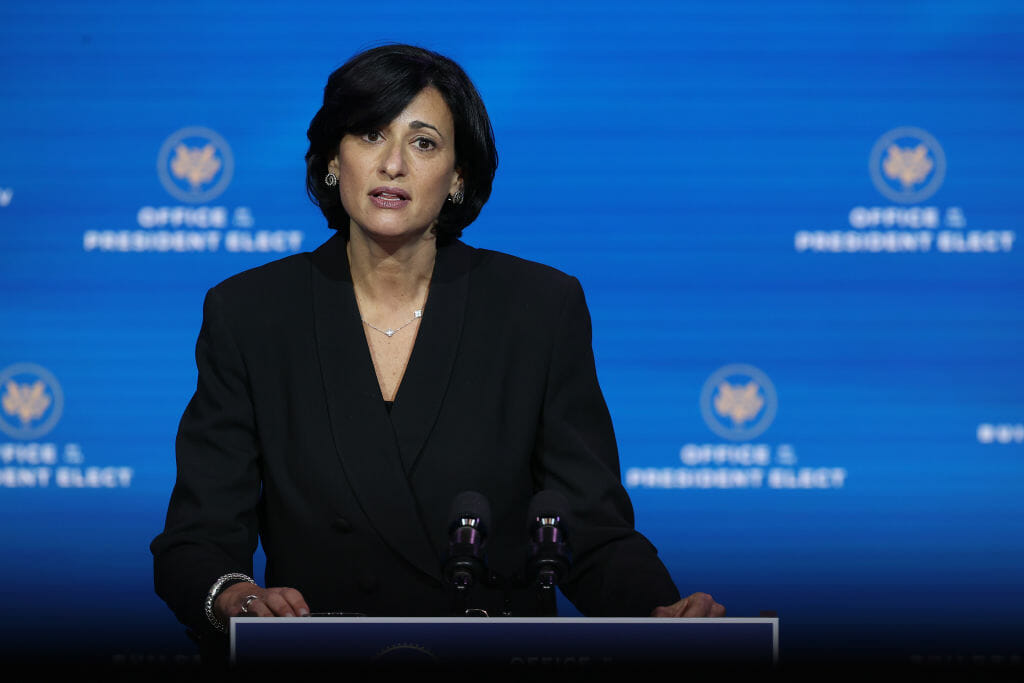On Wednesday, Joe Biden was sworn in as the nation’s 46th president — and on his first day he signed a series of executive actions to undo former President Donald Trump’s orders on the country’s COVID response, climate change and immigration.
As he took these high-profile actions, however, the Biden administration continued with its push to fill top roles at a range of federal health agencies. Here’s what we know so far about top contenders for these positions, as well as the leaders who have already been appointed.
At the Food and Drug Administration, Dr. Janet Woodcock has taken over as acting commissioner, replacing Dr. Stephen Hahn. Woodcock is likely one of the top two choices for the permanent assignment, along with former FDA deputy commissioner Dr. Joshua Sharfstein.
Woodcock has worked at the FDA for 30 years and recently stepped aside as director of the agency’s Center for Drug Evaluation and Research to work on Operation Warp Speed. Given her FDA experience, she would represent something of a safe pick, according to Coalition for Healthcare Communication executive director Jon Bigelow. One potential drawback: Woodcock has faced criticism in the past around her handling of issues like drug safety.
Woodcock and Sharfstein are deeply respected by the scientific community — a trait which will be a prerequisite for most every Biden pick, especially at a time when public trust in science needs to be shored up. The new commissioner will arrive in the wake of a controversial era for the FDA, during which former President Trump pushed the agency to speed up the vaccine approval process instead of relying on its commitment to science and data. A similar clash flared when the Trump administration pressured the FDA to authorize hydroxychloroquine to treat COVID-19, an approval that was later revoked.
“The key thing to watch for would be a clear focus on restoring science as the only driver of FDA decisions, after a year in which not only were there political attacks against the FDA, but in some cases Commissioner Hahn did seem to be bending a little to political winds,” Bigelow said.
New arrivals will likely also be charged with reassuring the public about the credibility of the approval process for current and future vaccines, Bigelow added. “The priorities will include using anything that’s been learned from the effort to expedite the approval of COVID products in other drug assessments, in order to maintain an efficient pace of approvals.”

Elsewhere, Rochelle Walensky has been appointed director of the U.S. Centers for Disease Control and Prevention. She has already pledged that COVID-19 vaccination programs are her top priority.
“I think the key point there is to restore the CDC as the key pandemic control setting for the U.S. government and restore credibility around setting guidelines and communications,” Bigelow explained. “I think one of the reasons why Dr. Walensky was chosen is because she’s very media-savvy; she spends a lot of time on cable news programs. She has said in interviews that she will be immediately available to make sure people know what’s going on.”
But Walensky has also expressed a desire to address pressing health problems beyond COVID-19. She was recently quoted in The Lancet as noting that “we will realize, unfortunately, that there’s been a massive amount of collateral damage to other health metrics related to COVID-19… We know that the opioid crisis has only gotten worse and I know we’ve lost ground in the HIV epidemic, and mental health and suicide – there are so many things that the CDC needs to tackle.”
As for other prominent posts, Dr. Mandy Cohen is likely to be among the leading candidates to serve as director of the Center for Medicaid and Medicare Services (CMS). Currently the secretary of the North Carolina Department of Health and Human Services, Cohen previously served as the COO and chief of staff at CMS.
“Whether it’s Mandy Cohen or someone else, the priorities of the new CMS administrator will be to take a very different path from the incumbent Seema Verma,” Bigelow said. That might include looking to undo measures that restrict the scope of the Affordable Care Act, like working to restore its marketing budget and bringing back the navigator program to help people choose a health insurance plan.
Finally, there will be a team put in place specifically to deal with the acute crisis of COVID-19 pandemic. One of those appointees is “COVID czar” Jeff Zients, who’s an economist rather than a public health expert.
Bigelow characterized Zients as “someone with a reputation of a hands-on, can-do, get-it-fixed type of person” and pointed to his work during the Obama administration. “Most notably, he’s remembered because a few years ago when the Obamacare health exchanges first went online, it was a total disaster. He was the person who was hired to come in and get it fixed very quickly, which he did.”
Zients will work alongside Dr. David Kessler, a former FDA commissioner who will serve as the scientific head of the soon-to-be-renamed Operation Warp Speed. Their team will also include Dr. Marcella Nunez-Smith, a physician and Yale professor who has been charged with studying and addressing the ways in which the COVID-19 pandemic has affected different communities.
“I think the unifying theme here has been to bring in public health and scientific experience, to bring in people with managerial experience — like Jeff Zients — and do a much better job of communicating so as to build public trust in the effort,” Bigelow noted.








